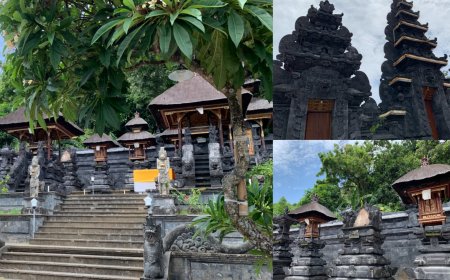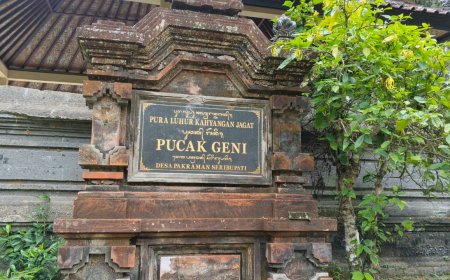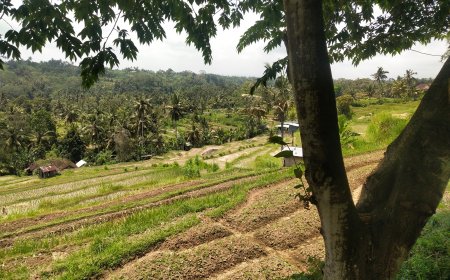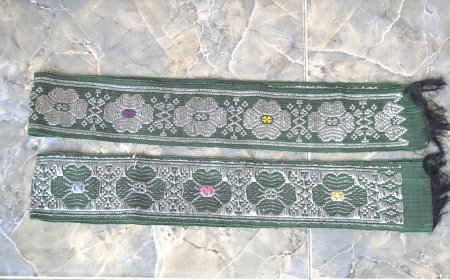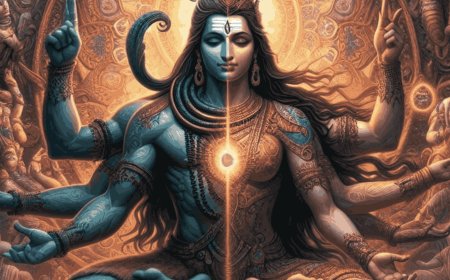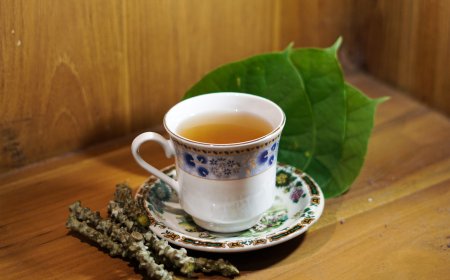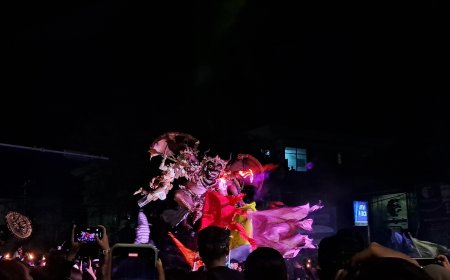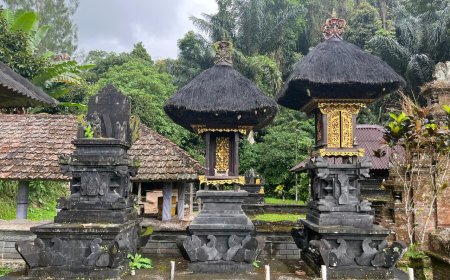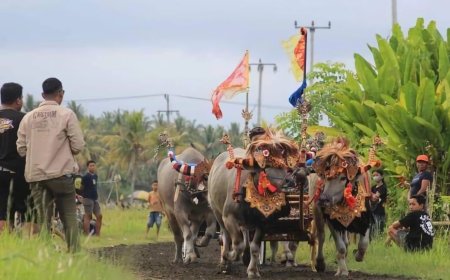The Uniqueness of Ngaben in Nusa Penida: Unveiling the Distinct and Captivating Ritual
Hidden amidst Bali’s beauty, Nusa Penida reveals the lesser-known charm of the Ngaben tradition. Ngaben is a Hindu cremation ritual aimed at freeing the soul from worldly attachments. Here, the Ngaben ceremony is not only held on land, as in most other places, but also involves an impressive sea procession. How do the sea elements and unique petulangan (animal effigies) create a distinct spiritual experience in Nusa Penida? Discover the answer through the uniqueness of Ngaben on this island.
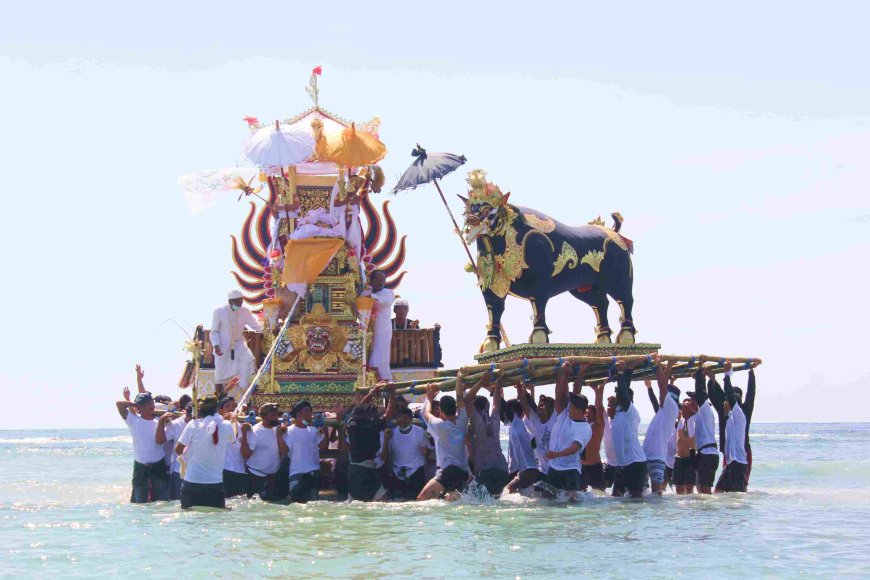
The Ngaben ceremony is a cremation ritual (sawa) performed by Hindus in Bali with the purpose of returning the body to the Creator, as well as purifying the soul of the deceased. Ngaben in Nusa Penida is known for its striking uniqueness compared to other regions in Bali. One of its main distinctions is the involvement of a sea procession, unlike the typical land-based Ngaben ceremonies. In Banjar Batumulapan, a mass Ngaben is held every five years, where several families conduct the ritual simultaneously. The procession involves carrying the bade (the platform for the remains) to the beach and even into the sea, a process called niwakang. In this procession, the bade and petulangan meet in the middle of the sea, accompanied by increasingly intense gamelan music, adding energy and spirit to the ritual while creating a sacred and powerful atmosphere.
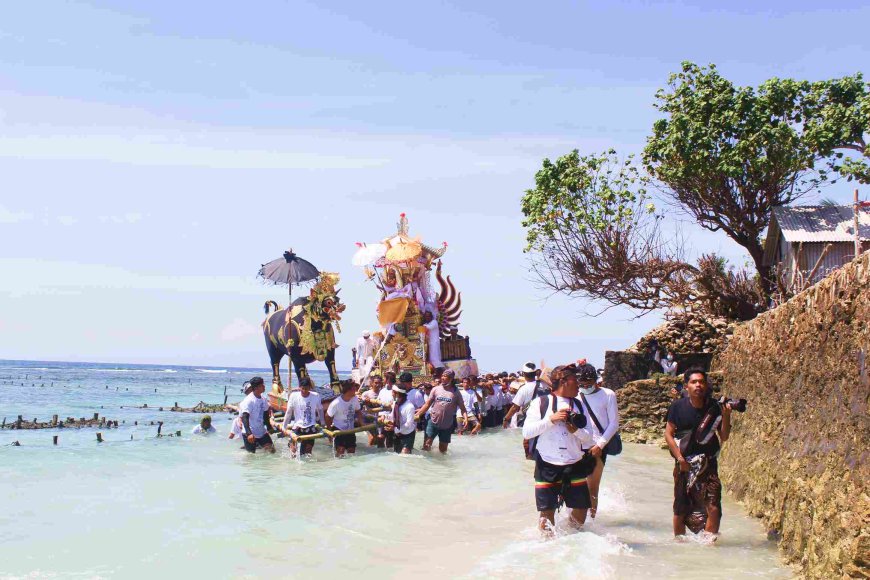
Niwakang (Source: Personal Collection)
Although the sea procession is a unique element, the cremation of the sawa is still carried out on land at a special site called pamuun. The practice of niwakang has become rarer due to coastal erosion, which hinders the execution of the sea procession in several banjar. Only a few banjar, such as Batumulapan, Kutapang, Semaya, and a few others, continue to preserve this tradition.
In the Ngaben ceremony, petulangan are symbols or representations that are usually in the form of animals. The role of the petulangan is to carry the soul of the deceased to the afterlife or the 'alam niskala' (spiritual realm). In Nusa Penida, petulangan often take the form of animals like the elephant (Gajah Mina) or cow, which play a role in the ritual as symbols aiding in the transition of the soul. The variety of petulangan forms reflects the symbolic diversity within the Ngaben ceremony and how each form holds specific meaning within the context of the ritual.
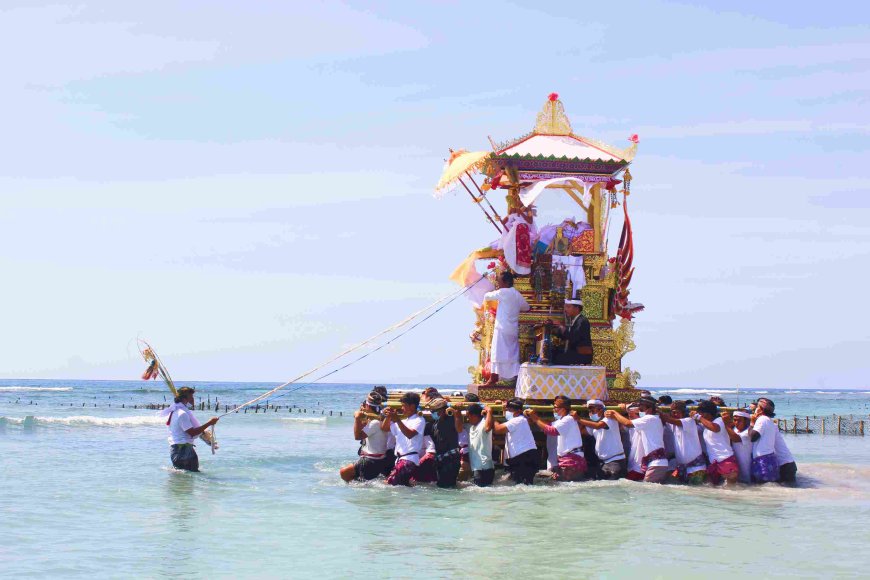
Ngaben Ceremony Procession in Nusa Penida (Source: Personal Collection)
The Ngaben ritual in Nusa Penida also highlights aesthetic richness through the majestic structure of the bade. Each bade is intricately designed and adorned with ornaments depicting religious and mythological symbols. This artwork not only serves as a place to house the sawa but also as a visual manifestation of Balinese traditional beliefs and art. The creation of the bade involves artisanal skills passed down through generations, with every element of the design carefully chosen to reflect the spiritual and cultural aspects of the ceremony.
Additionally, the active participation of the community in the Ngaben ceremony demonstrates social solidarity and the strength of the community. During the procession, villagers work together in various roles, from carrying the bade to playing in the gamelan ensemble, all contributing to the smooth running of the ceremony. This involvement strengthens the bonds between community members and reinforces their collective identity. With all its uniqueness and complexity, this tradition provides a platform for the people of Nusa Penida to express their respect for tradition, culture, and long-established social relationships.
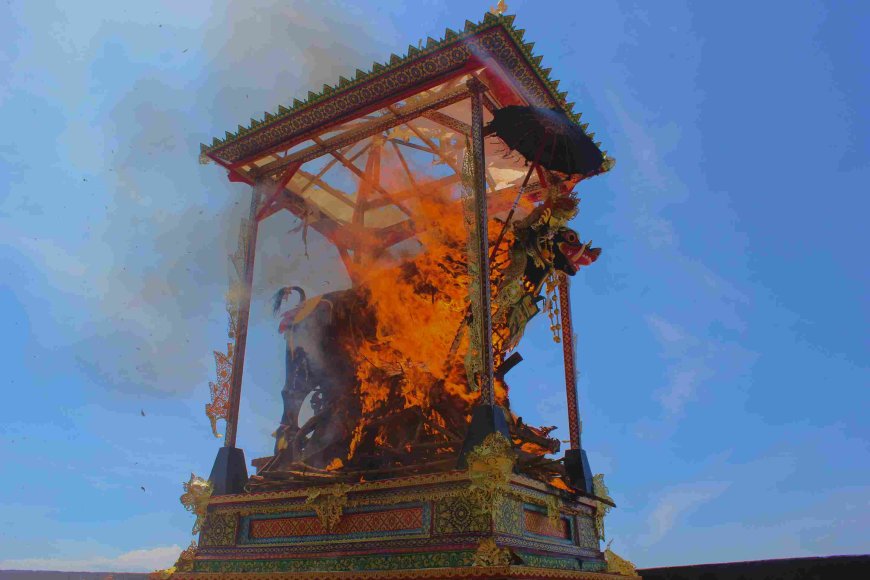
Burning of the Lembu Petulangan (Source: Personal Collection)
One aspect that adds to the appeal of this ritual is the presence of various forms of petulangan, often regarded as manifestations of power and grandeur in local tradition. Both 'Gajah Mina' and cow, made from local materials with stunning detail, serve not only as symbols but also as focal points of the procession. The presence of the petulangan in the middle of the sea combines spiritual and aesthetic elements, creating a spectacular and emotional visual experience for participants and onlookers. This element affirms the deep connection between humans, nature, and God within this ceremony, making each Ngaben a celebration that unites beauty, strength, and profound meaning in harmonious unity.
The existence of the Ngaben ceremony in Nusa Penida, which involves both land and sea processions, illustrates the rich cultural heritage and ritual diversity of Bali. The involvement of the community and attention to every detail in this procession reflect their dedication to preserving and safeguarding a long-standing cultural legacy. Despite the challenges of modernization and environmental changes, this tradition remains an essential part of the identity and harmony of the Nusa Penida community, who continuously uphold their cultural values through this grand and meaningful ceremony.



